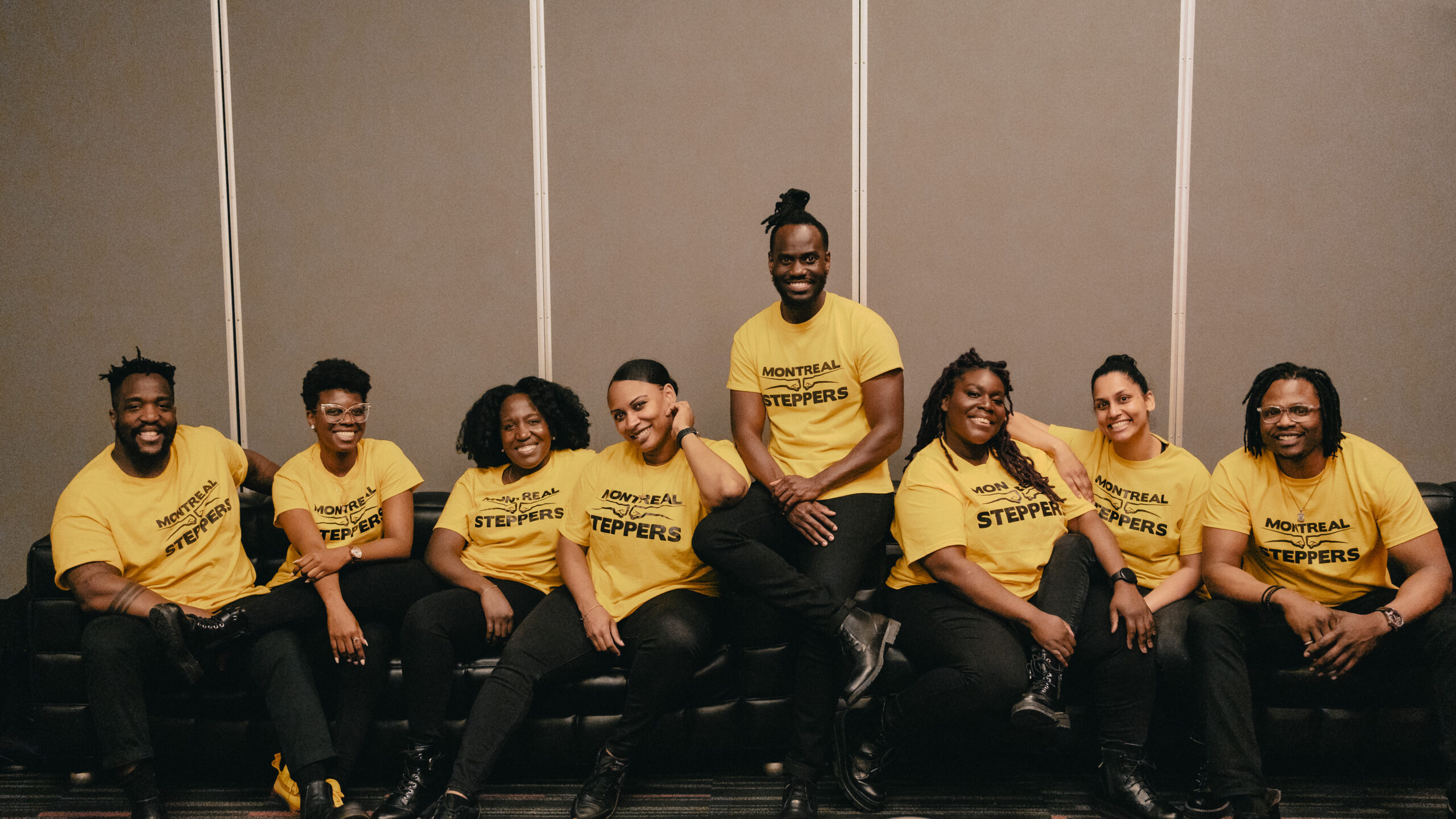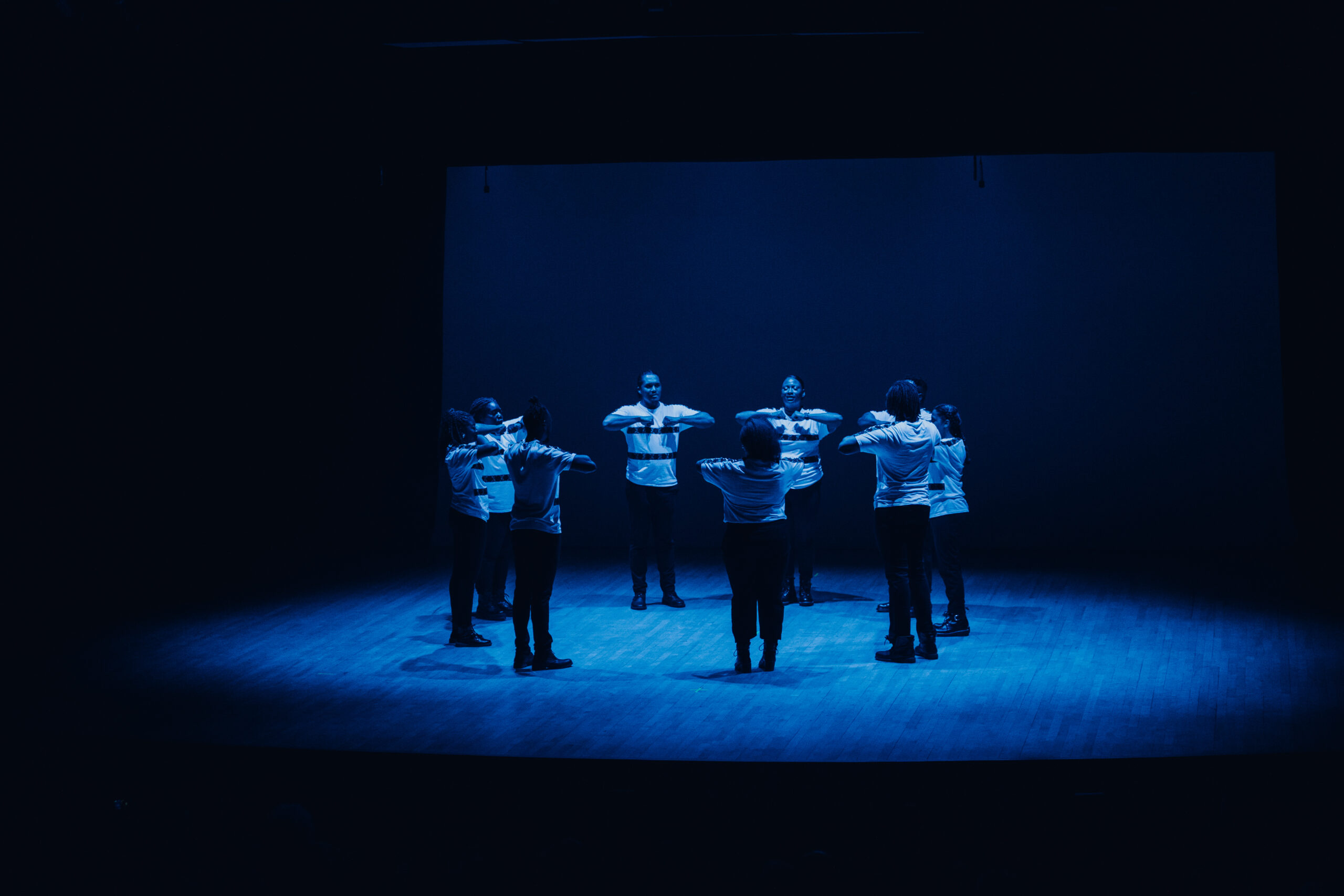
In 2023, Kayin Queeley was named a Black Changemaker by CBC for his work founding and leading the Montreal Steppers. That’s because the group is more than a performance collective: it’s a means of educating people – particularly youth.
“We explore stepping in Canada, but also the roots of step, which allowed us to influence the discussion around Black history, Black lives, and Black culture,” said Queeley in an interview.
“It’s an engaging way to address the lack of knowledge among students about Black history.”
Because of that combination of art, culture and education, McGill’s Equity Team invited the Montreal Steppers to kick off the opening ceremony for McGill’s Black History Month (BHM) on February 1, 2024.
Roots of stepping

The history of stepping is about resistance and empowerment. Its roots are associated with the banning of drums after the 1739 Stono Rebellion, in South Carolina.
“It was an attempt to break the spirit of enslaved people. However, the ban allowed them to return to their ancestral roots, creating music and expressing themselves through the use of their bodies.”
This became more formalized with the advent of historically Black colleges and universities in the early 1900s in the United States, explained Queeley.
“We saw a movement of creating rhythms, cadences, beats through a tapping of the body, clapping of hands, and stomping of feet in synchronization. Choirs, sororities, and fraternities often incorporated the genre in their activities.”
It was during his own university years in Plattsburgh, New York, that Kayin learned about and embraced stepping through a choir. He described a sense of community and fun that was easy to embrace.
“Though somewhat less popular in Canada, stepping started in 1991 at Vanier College by the Vanier Stompers. This led to the creation of Boutz and other notable groups at other colleges in Montreal.”
The McGill connection
In addition to supporting youth with access to a fun version of art, history and culture, Queeley’s ‘9 to 5’ involves helping individual McGill students in times of crisis. They are referred to him when they come up again situations that put their studies or well-being at risk.
“I’m one of the three case managers in crisis response, working out of the Office of the Dean of Students. I support students who are experiencing various types of crisis situations, anything from academic challenges to housing problem or immigration issues,” says Queeley.
He also spent time working at McGill Residence Life and volunteered in Montreal schools.
“While I was waiting for my residency papers, I wanted to serve the community. It’s during that period of volunteering that I turned back to stepping, after pausing for a couple of years. I saw it as a dynamic way to teach children about Black history and culture.”
Teachers and mentor figures took note and encouraged Queeley to take the stepping workshops to the next level.
“I connected with close friends and family to discuss the possibility of starting a collective, they all agreed and we began doing a few projects here and there. As we went forward, we felt compelled to continue. Next thing you know we were branding ourselves the Montreal Steppers, developed a production, and started receiving significant requests for workshops and performances.”
Queeley estimates that the Steppers have worked with over 15,000 participants and offered over 500 workshops since their founding in 2019.
Those interested in seeing the Montreal Steppers in action can register and attend the opening ceremony of McGill’s BHM. Those who miss it but want to learn more about the Steppers, should visit their website.

Saw a group on CTV at a school in Montreal. Would like to know if. you could come to my town. Very impressed with your talents.Can you answer me back by e-mail.?